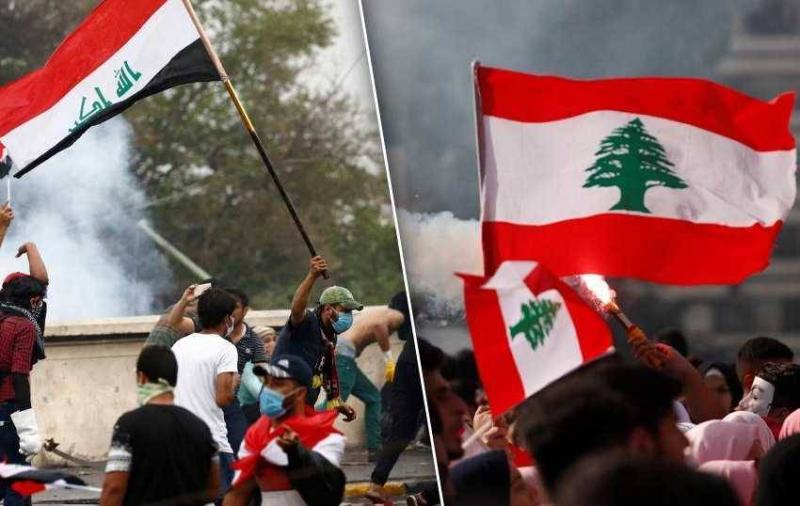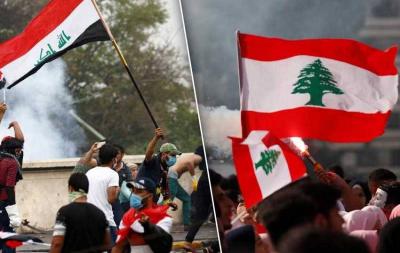From Iraq to Lebanon, it seems that paralysis will be the prevailing situation. The results of the Lebanese parliamentary elections are politically similar to those of the recent Iraqi parliamentary elections. In Baghdad, it is difficult for the allied blocs to form a national majority government, and it has become nearly impossible for the conflicting blocs to reach a consensual solution. In Beirut, the results of the parliamentary elections show that no winning party possesses a constitutional majority, and reaching consensus among them would require a miracle. This indicates that both countries have reached the peak of political blockage, as Iraq is threatened by civil unrest if the conflicting parties resort to violence, while Lebanon is seriously threatened by social violence due to economic deterioration.
If the Iraqis manage to elect a Speaker of the Parliament before their Parliament enters a phase of paralysis, the new Lebanese Parliament was born paralyzed. From the moment the results were announced, traditional political parties showed no rush to propose a consensus on the name of the Speaker. Meanwhile, most change MPs (the "Tacharneh") have outright rejected the re-election of the leader of the Amal Movement, Nabih Berri, who is supported by Hezbollah, as Speaker of the Parliament. This reinforces the possibility that the speakership will remain with the oldest member for a long time.
The complexities of the anticipated first parliamentary session reveal the extent of the paralysis that Lebanese state institutions will face in the coming months, especially since there are major constitutional and economic obligations that need to be addressed. Most winning parties are inclined to demand that constitutional obligations be linked together. If the Shiite duo imposes Nabih Berri again, other parties will demand that the ruling Shiite duo lift its obstructive conditions regarding other obligations, especially the premiership and subsequently the presidency. This could lead to local and external political clashes, especially since regional parties are trying to link Lebanon's fate to major regional settlements.
Attempts by internal parties and regional forces to link the Lebanese situation to regional settlements will face significant obstacles, after the "October Uprising" shattered Hezbollah's prestige, and the results of the recent parliamentary elections led to its loss of control over the legislative authority. This also means a decline in control over other state institutions; similar to what the "October Uprising" in Iraq in 2019 achieved, which drove nails into the coffin of the 2003 regime and succeeded in introducing change forces into political life, breaking the armed political parties' monopoly on political decision-making.
The loss of these forces in Lebanon and Iraq of constitutional majority and the difficulty of forming a consensual majority due to conflicting internal and external agendas will lead to political paralysis in the resource-rich Iraq, which is experiencing a violent struggle over spoils. In Lebanon, paralysis will complicate the economic situation, especially as part of the dominant political forces is determined to obstruct necessary reforms. Between a budget surplus due to rising oil prices in Iraq and a budget deficit resulting from the emptying of the state treasury in Lebanon, it appears that the fragile stability in both countries may face significant shocks if the political forces cling to their approaches to political and economic issues.
It is evident that in both countries, the regional rhythm conductor has lost its ability to shape the political course, and the outcomes of the parliamentary elections confirm its waning dominance. For more than two years, all Iranian efforts have failed to open a breach in the wall of Iraqi paralysis, nor have they managed to manage the collapse in Lebanon. After the parliamentary elections, it has become clear that the crisis is no longer linked to consensus on the presidency or the premiership or the shape of the government, nor to external settlements, but rather a crisis of a system in Iraq that has expired, and a crisis of a ruling system in Lebanon that is no longer qualified to manage the state.
Mustafa Faqih - Asharq Al-Awsat




